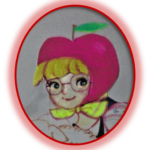*READ MORE から音声も聞けます。
音声はこちらから⇒ Spotify: iPhone: Google Podcast: CastBox:
プロセスエコノミーを説明するためにShokoが考えた英語
”Process Economy” means that showing the process of making products can be a key to success. The process leads to getting people’s sympathy and then the product sells well. a key to success 成功への鍵 A lead to B AはBにつながる AはBという結果になる
bandwagon
Here’s a phrase that you might not have heard in a while: “to jump on the bandwagon” しばらくの間、聞いていなかったかもしれないフレーズ:「時流に乗る・多勢に与する」です。
For those not familiar, when you jump on the bandwagon, it means you begin supporting a music group, hobby, idea, person–or any trend basically–after it has become popular or successful. You could use it like this: “Why Do People Jump on the Bandwagon Instead of Thinking for Themselves?”
あまり知らない人のために、バンドワゴンに飛び乗るとは、音楽のグループ、趣味、考え、人など、人気がでたはやりものを支持すること。
instead of ~ ~する代わりに、~しないで *バンドワゴンは行列先頭にいる楽隊車
Another approach is to use the psychological term “the bandwagon effect.” 心理学的用語「バンドワゴン効果」
https://www.psychologytoday.com/us/blog/stronger-the-broken-places/201708/the-bandwagon-effect
“The bandwagon effect is a psychological phenomenon whereby people do something primarily because other people are doing it, regardless of their own beliefs, which they may ignore or override.” バンドワゴン効果は心理学的現象 他の人たちがそれをしているからという理由で(それにより)人々がまず第一に何かする、自分自身の信条と関係なく、そして(その信条を)無視し無効にするのです。 phenomenon(複数形はphenomena) 現象 whereby(関係副詞)= by which regardless of ~ ~と関係なく ignore or override 無視し無効にする
従来、すべてのスワン(白鳥)は白色と信じられていましたが、オーストラリアで黒いスワンが発見されたことにより、鳥類学者の常識が大きく覆されました。これにちなんで、確率論や従来の知識や経験からは予測できない極端な事象が発生し、それが人々に多大な影響を与えることをブラックスワンと呼んでいます。具体例としては2008年のリーマンショックがあげられます。
グリーン・スワンは、気候変動が引き金となる新たなグローバル金融危機のこと。
social responsibility
Here’s a term that you’ll probably come across in business and the news:
social responsibility (or SI for short)
Social responsibility is a means of achieving sustainability. Adopting key social responsibility principles, such as accountability説明責任 and transparency透明性, can help ensure the long-term viability (計画などの)実行可能性 and success of any organization or system.
https://asq.org/quality-resources/social-responsibility#History
In a now infamous New York Times article by Milton Friedman published in 1970, the Nobel-Prize-winning economist wrote that social responsibility is a “fundamentally subversive破壊的な doctrine in a free society.” He believed that the only responsibility that a corporation has is to the shareholder. In 1999, John Elkington introduced the concept of the “triple bottom line,” making the case that concern for society and the environment can coexist with an ambition for profits.
*持続可能な企業評価の指針となっている「トリプルボトムライン」の概念を提唱したジョン・エルキントン氏は、新たな著書『グリーンスワン』に関する講演で、今後はこれだけでは不十分として、資本主義のシステムを再生・修復型(リジェネレーション)に変えていく必要があることを示した。
“Ethically sourced” is a phrase that has become really common when describing products on a label or a company’s website.
https://myethicalchoice.com/en/journal/ethical/ethically-sourced/
Here’s an example of how to use it in a sentence: A simple way you can tell if a product is ethically sourced is by looking at brands and companies’ message behind their products, philosophy, values and business.
“In recent years, words such as ethically sourced, fair trade, organic, and cruelty free have been trending and acknowledging 認めるthe issues behind consumption and coming up with ways to solve them have become topics of discussion.”
fair trade
a global movement to improve the lives of farmers and workers in developing countries by ensuring that they have access to export markets and are paid a fair price for their products. Those objectives are often achieved by establishing direct trading relationships between small-scale producers in Africa, Asia, and Latin America and fair trade organizations (FTOs) in the United States and Europe, thereby eliminating intermediary buyers and sellers. A subsidiary goal of the movement in developed countries is to increase consumer awareness of unjust and unfair international trade practices.
example sentence: “Do you know if that coffee roaster sells fair trade beans?”
https://www.fairtrade.net/about/how-fairtrade-works
“cruelty-free” simply means that a product and its ingredients weren’t tested on animals.
Here’s how to use it in a sentence:
“The best way to ensure that you’re not supporting cruel and deadly tests on animals is by purchasing only from companies listed as “cruelty-free” in the PETA database.”
https://www.peta2.com/vegan-life/what-does-cruelty-free-mean/
PETAーー動物の倫理的扱いを求める人々の会 People for the Ethical Treatment of Animals の acronym(頭字語)



